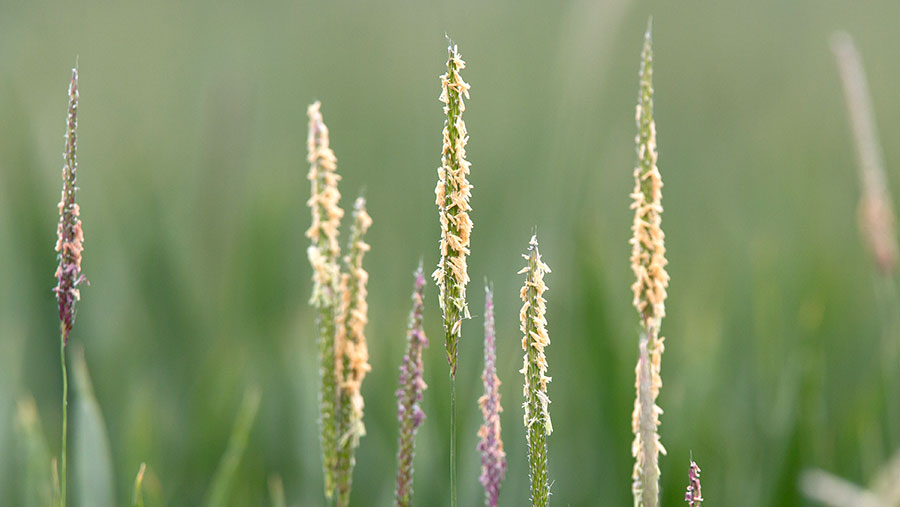Bayer working on new chemistry to tackle blackgrass
 © Tim Scrivener
© Tim Scrivener Agrochemical giant Bayer is working on a herbicide with a new mode of action to tackle blackgrass in winter wheat.
Arnd Nenstiel, the company’s weed control specialist, says researchers in Frankfurt has identified a number of new modes of action to control the arable industry’s most-damaging grassweed.
The new chemical classes are “distinctly different” from what the entire agricultural industry has been working on for the past 30 years, he adds.
See also: How to overcome the blackgrass burden
“There have been a number of new modes of action detected, although they never made it to the market,” says Mr Nenstiel.
“One of the reasons those solutions failed is that the tests on urine and environmental toxicity were done at the very end.”
One of the chemical classes has a relatively broad spectrum of activity, although he adds they are all narrower than glyphosate.
Mr Nenstiel predicts it will take at least five years for the new chemistry to come to the commercial market.
New products
In the meantime, he says UK growers could soon look forward to new herbicides to tackle blackgrass that will be manufactured by mixing existing molecules, including one for this autumn.
Bayer recently secured UK approval for Alternator Met, a new product that it said will give 10% better control of winter wheat by adding a third residual, metribuzin, to the group’s main grassweed killer, Liberator (diflufenican + flufenacet).
Metmetribuzin is an active most familiar to potato growers, who use it as a pre-emergence spray.
The researchers at Bayer’s Weed Resistance Competence Centre in Frankfurt are working on a multi-year programme at farm level, focusing on a mix of solutions to ensure resistance does not build quickly owing to an overreliance on one mode of action.
This involves working on sustainable weed control methods to use in combination with chemistry, such as mechanical, thermal and electrical approaches. How to address the challenge of the weed seed bank in the soil is also key.
€5bn investment
The work on blackgrass is part of a €5bn (£4.45bn) investment by Bayer in developing new weedkillers and reducing its environmental impact by 30% by 2030.
Blackgrass remains a major concern for cereal growers and it costs the farming industry an estimated £500m/year, according to the Agriculture and Horticulture Development Board (AHDB).
The performance of Atlantis (iodosulfuron + mesosulfuron) has declined and although flufenacet is working well, the first signs of resistance to the herbicide have been detected.
Arnd Nenstiel was speaking to Farmers Weekly at Bayer’s Future of Farming conference in Leverkusen, Germany, on Wednesday 2 October.
